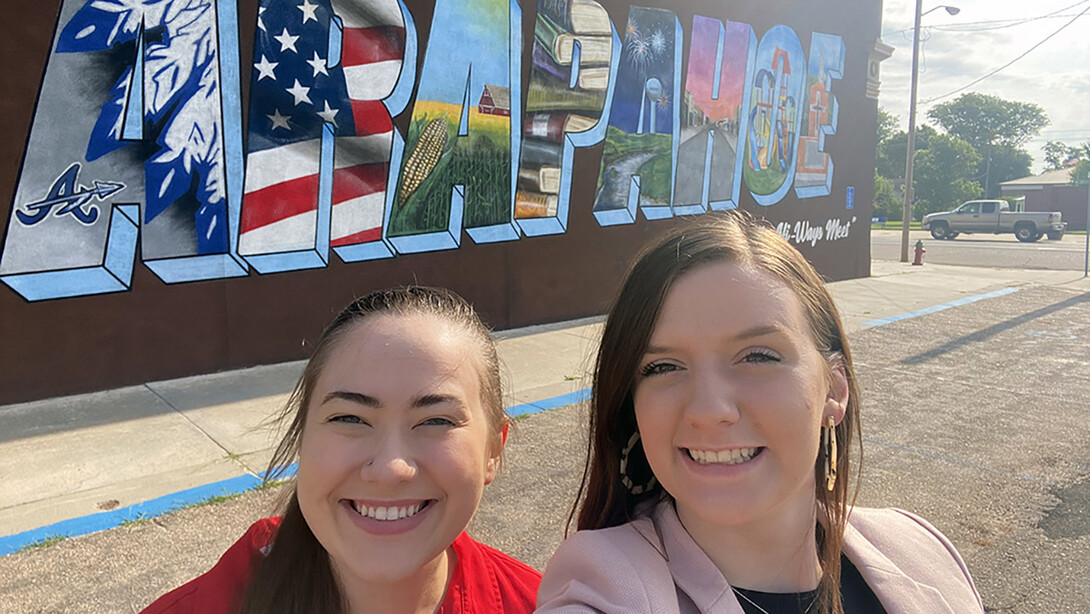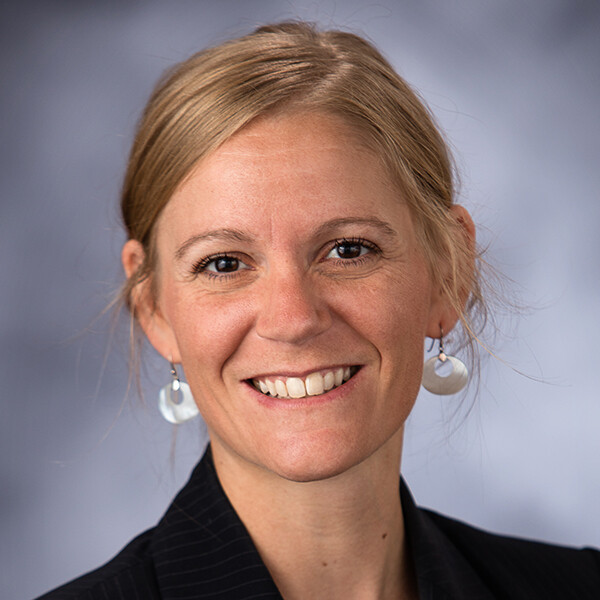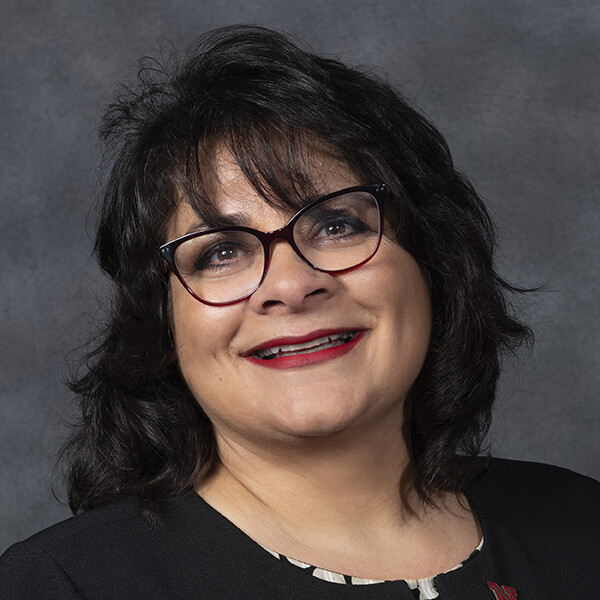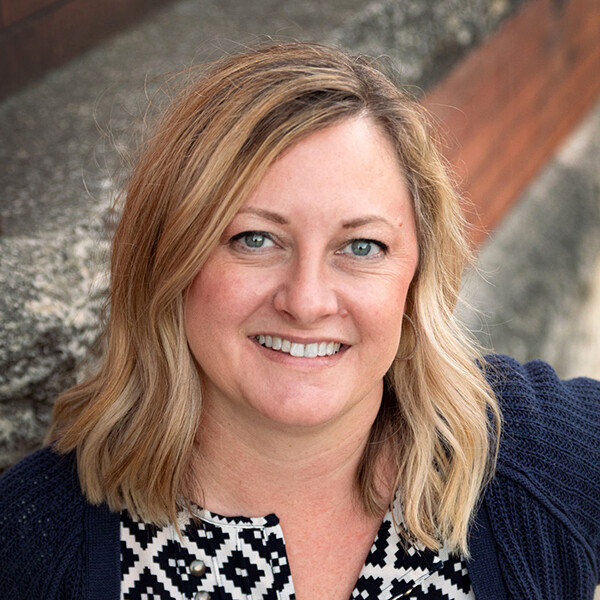
Of the 531 communities in Nebraska, 427 are considered rural. Each year, fellows and interns live in a number of these towns to help with community improvement projects, thanks in large part to three collaborative programs: the University of Nebraska–Lincoln’s Rural Fellowship, Lead for America’s Lead for Nebraska and the Nebraska Community Foundation’s Hometown Interns.
The Rural Fellowship program has existed for eight years; Hometown Interns, three; and Lead for Nebraska, one. In 2021, 57 fellows and interns served in 36 communities across the state.
The logistics for each program vary, but they share a goal: to help Nebraska’s communities and citizens prosper. Rural Prosperity Nebraska’s Russell Shaffer spoke with the directors of these programs — Helen Fagan, Rural Fellowship program coordinator; Rebecca Johnson, Lead for Nebraska deputy director; and Janny Crotty, assistant director of advancement for Hometown Interns — to discover how they accomplish their goals.
All three programs place fellows and interns across rural Nebraska to help with community development, so what sets the programs apart?

Janny Crotty, Hometown Interns: Our focus is the hometown. We put a lot of emphasis on interns seeing their hometown with new eyes. When you’re in high school, you’re not really looking at your community from a development perspective or as an entrepreneur. The idea is to return after being away and have that curtain pulled back.
Helen Fagan, Rural Fellowship: Our student fellows come from anywhere, and they go anywhere in Nebraska. We’ve had students from Scottsbluff serve in Arapahoe, and we’ve had students from Oman and Rwanda serve in Gothenburg. No matter their origin or destination, these summer-long service experiences can be life-changing.
Rebecca Johnson, Lead for Nebraska: Our program is longer and more in-depth. Our fellows commit to a two-year term of service, and they are embedded into the communities they serve. They live there, serve there, and get involved with civic and nonprofit organizations and local governments to tackle challenges and add capacity that might be missing.
How do Nebraska communities benefit from hosting fellows and interns?

Fagan: There’s a great return on investment for the community that’s beyond dollars and cents. Just the fact that they have young people serving there helps create a level of energy that may have been lacking before. Community pride goes up. For repeat communities, community leaders are a little bit different because of the experiences, training and interactions they’ve had. They’re coming up with ideas that are not a direct result of what we’ve done, but from the hard work they’ve put in and relationships they’ve built that were probably facilitated by student fellows being there. That is a benefit to the community in general.
Crotty: There are, in some cases, obvious, measurable outcomes of benefits, especially in the people-attraction realm. However, most of our work is built around the communicable nature of investment in community, like creating a welcoming place where people feel like they belong. Helping them make progress on projects in that direction benefits the community. The more active the leaders are, the more they’re inspired, the more money they raise, the more projects they accomplish, the more enthusiasm they get from the greater community. This is always that quantitative vs. qualitative measurement.
Johnson: I would echo a lot of these statements. Our core mission is adding capacity to community organizations where the challenges might be outpacing the resources. We rely on the multiplier effect, which is basically where one person comes in, and they act as a magnet for people to get out there, make an impact, have their voices heard and volunteer. Communities get the added capacity of a college-educated fellow with a passion to serve. These fellows are giving folks a path to come and make an impact in areas where it’s needed most. The scope of service is completely customizable to the needs of the community.
What types of projects do the fellows and interns work on?

Johnson: A lot of our fellows are focusing on rural broadband expansion right now. We have a fellow doing public health work, focusing on COVID response with the Department of Health and Human Services. Those are big focuses right now. But generally, the scope of work can really be customized to the needs of the community and the strength of the fellow.
Crotty: Our projects vary greatly, based on students, based on community priorities. Some work on big events, like the Dream Switch concert, where there’s an end date. But a lot of them lay the groundwork for interns the next year. Asset mapping, marketing, youth engagement projects. One intern worked in a summer school program, another in early childhood development.
Fagan: We work hard to pair students’ skills with community needs. Last summer, a business administration student worked on business development in Arapahoe, a leadership development student created business leadership courses in Dawson County, and a mechanical engineering student helped create a citywide trail system in Gothenburg. Projects vary, but they’re always beneficial.
How do you see these three programs working together?
Crotty: As the saying goes, ‘Change happens along the lines of relationships at the speed of trust.’ While we may not work directly together, these programs help create relationships between community leaders and community members. As communal trust increases in a community, it increases all throughout the state. Folks begin to trust each other and rely on each other. When we talk about this idea of strengthening Nebraska communities, we can’t talk about that without talking about everybody collaborating. We’re all working toward the same goal, really — to help Nebraska thrive.
Johnson: We’re launching our first cohort this year, but I really see our program as an extension of the amazing work of the Hometown Interns and Rural Fellows. We get post-grads in communities for a longer term to really bring the fellowship full circle. This gives them a way to impact communities even further and maybe build a life there. We have one LFNE Fellow right now who is doing work started by Rural Fellows the previous summer. I’m hoping the programs can become a pipeline, like an introductory phase for young leaders to be able to empower these communities to add capacity that’s so important.
Fagan: There’s nothing set in stone, but if the students that do the Hometown Internship have a great experience, they’re more likely to do the Rural Fellowship. If the Rural Fellows have a good experience and they’re from Nebraska, they’re more likely to do LFNE. So they can feed into each other. From the community standpoint, too. Valentine had a good experience with the Rural Fellows, and I think that led them to thinking, ‘This worked, so let’s go longer,’ and now they have LFNE Fellows there. That’s the beauty of these programs — the synergy that’s created that Nebraska benefits from.
Where do you see these programs going in the future?
Johnson: I’d love to see a fellowship pipeline in every county of the state. These kinds of programs do so much good. But at the end of the day, I want to see our cohort be successful and be part of that transformational experience to engage with their community in a different way. Just get back there and do good and make a difference.
Fagan: My vision has always been 200 students in 100 communities that are willing to take diverse students from different walks of life. This year, we’re adding high school students to the program, mentored by our college students. I’d like to see high schoolers go through this development, impact their communities and begin thinking about a future life there.
Crotty: I’d like to see change that sticks. Nebraska could be a leader in using internships as a rural development opportunity. Continuing to find ways for this to work and not just exist in a vacuum, but to really be beneficial to entire communities and be something that everybody sees the benefit of, well, that’s hard to measure, but we’re just going to keep trying.
To learn more about the Rural Fellowship program, click here. To learn more about Lead for Nebraska, click here. To learn more about Hometown Interns programs, click here.







